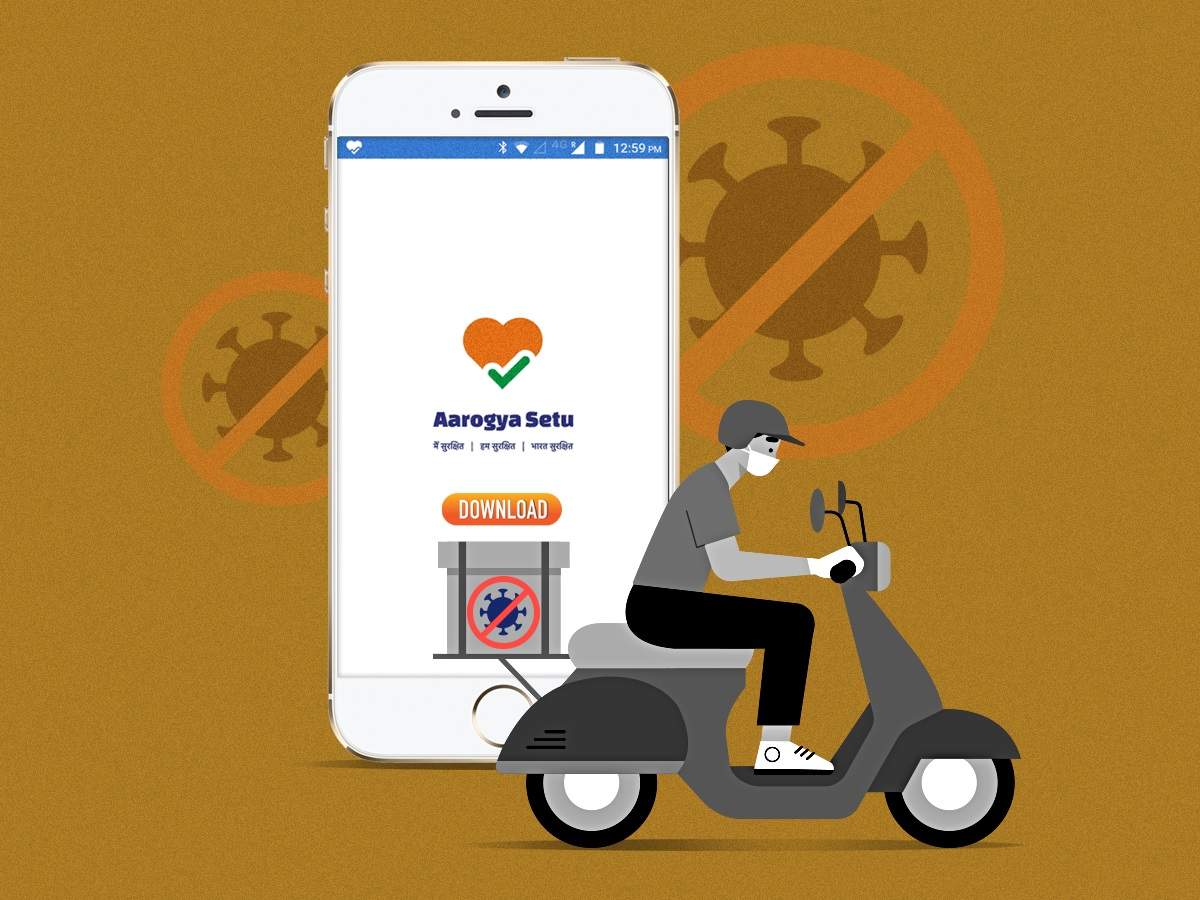
Food delivery platforms Swiggy and Zomato, online services marketplace Urban Company and e-grocer Grofers have asked frontline staff to mandatorily use the government’s Aarogya Setu contact tracing app, while e-commerce heavyweights Amazon and Flipkart have also recommended that their workers do the same, despite concerns over the app’s privacy and security.
“Since it’s a government app, we trust it and trust (the) government to do the right thing,” said Abhiraj Bhal, co-founder of Urban Company. Deepinder Goyal, founder and CEO of Zomato, said on microblogging platform Twitter that if delivery partners install the app on their phones, that would give its users “confidence” to order essentials home.
We are also going to showcase that our delivery partners are using the Aarogya Setu app so that it gives our users… https://t.co/2DlzBN6mNk
— Deepinder Goyal (@deepigoyal) 1587536473000
We have made sure that they can only login to their Zomato Delivery Partner app if their phone has the Aarogya Setu… https://t.co/nGqtSotUCE
— Deepinder Goyal (@deepigoyal) 1587536474000
Swiggy said most of its delivery staff had already downloaded the app, while Amazon and BigBasket said they were helping raise awareness about the app with its delivery personnel in case they wanted to download and use it. Flipkart did not respond to an email seeking comment.
Privacy and cyber security experts, however, said the app can only be used for contact tracing and does not indicate whether a person is a carrier of the virus or not.
There is no scientific basis to claim that contact tracing apps have helped stem the spread of the outbreak, they pointed out.
Apar Gupta, executive director of the Internet Freedom Foundation, said the app is a form of surveillance, owing to its vague privacy policy and weak data regulation framework.
The government has failed to specify how the data will be used, for how long it will be stored and whether it will be used later for any other purpose, Gupta added.
Last week, the ecommerce industry had proposed standard operating procedures to stem the spread of the virus, which included compulsory installation of the app by all its on-ground staff, among other precautions. The proposal was not carried through as the government rolled back its decision to allow ecommerce firms to supply non-essential items, under pressure from offline retailers, till May 3 when the lockdown ends.
Leave a Reply